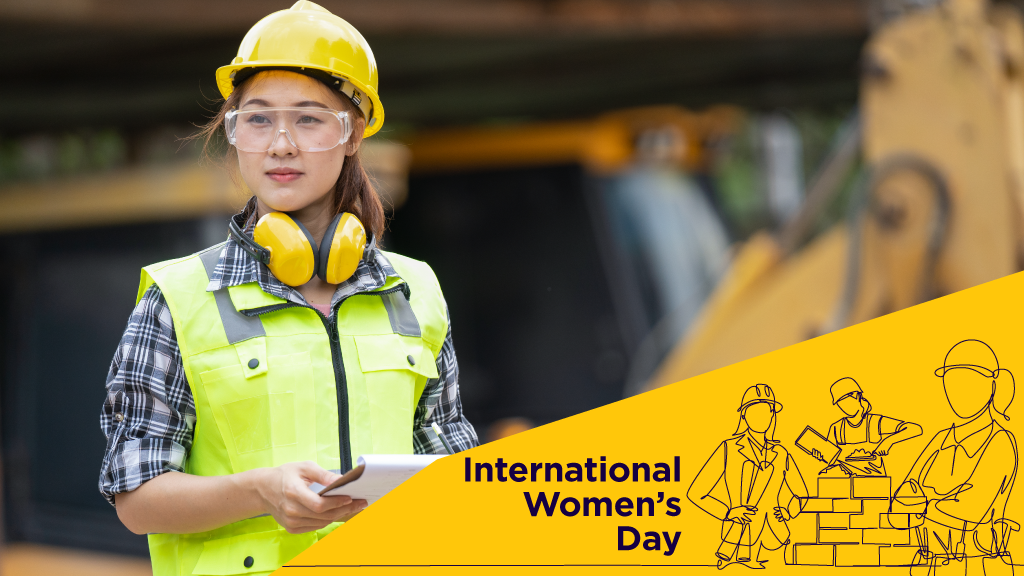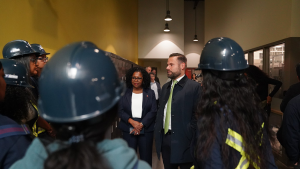One of the biggest challenges in the construction industry is hiring and retaining women and although all the women on a recent panel had different ideas on the matter there was a common thread: Education.
Deltek hosted a webinar in honour of Women in Construction Week entitled Empowering Women in Construction on March 6.
Maribel Scarnecchia, director of consulting with , talked about the importance of having female role models.
“I think that would help us get a lot more women in if there was more to see of us being out there,” she said. “It’s not very comfortable sometimes to sit on these panels and tell your story but it makes a difference that people can see. There are women that are making a difference in the construction industry. It’s an industry that is wide open for women. We just have to step in there and make our way through.”
Teach them young
Crystal Barger, vice-president of customer success with , said education at an early age is key. She talked about the importance of groups like the and the programs they have geared towards youth.
“Promoting what you can do in the construction industry and all of the different roles, because some people may think just trades and some people may think just the office, but there are a lot of different roles where women can excel,” she noted. “If you are a female leader you should definitely have some mentorship. If you are looking for mentorship you shouldn’t be afraid to ask a strong woman to be your mentor.”
Also important is breaking down negative biases of what a construction worker does.
“There is really good earning potential for skilled tradesmen, tradeswomen, but we need to make sure we are promoting these are options to go to right out of high school to start earning a really good income,” she said.
Moderator John Meibers, VP and GM of Deltek ComputerEase, said it’s critical to introduce youth to the trades as early as possible.
“Also, I think it’s important to get the message to the people that influence them: their parents, their guidance counsellors at school and make sure they are presenting this as an option for women where traditionally that probably wasn’t presented to them,” he said. “It’s really important that the parents can see their daughter getting into construction. If they can see that and they’re educated that’s going to make it easier.”
If you can see it, you can be it
Donna Green, controller, went to vocational school but didn’t see any females in the trades classes.
“We would go to lunch and there were the carpenters and there would be the HVAC guys, the electricians. Never once do I remember seeing a lady in any one of those classes,” she said.
“That is such a stereotype that needs to be broken to these kids to say that it doesn’t matter whether you are male or female, there are positions in the construction industry in which everybody can excel. We need to get out there and get that to the folks so that the young kids know exactly what is available to them.”

In terms of retention, Karen Hager, accounting/HR manager, and national president of NAWIC, said it’s important to give women the tools they need to stay in the industry.
“I’m not just talking about physical tools, I’m talking about education, allyship, mentorship, anything that they need that will help them to grow, not just in the position they have but in the position they want,” Hager said.
Improving the culture
Panellists also agreed it was important to create a work culture that was welcoming for women including eliminating the “boys will be boys” mentality.
“I think we need to not dismiss certain comments or certain behaviours towards women,” said Barger. “I’ve worked with a lot of men who thought they were well above me and they would down talk to me. Not accepting that type of behaviour I think would go a long way to improve the culture in the construction industry.”
Instead, workplaces need to adopt a “see something, say something” culture.
“Whether it’s men or women, if you see something that is going on that is not right you need to say something,” said Hager. “Too many times people are afraid to say something because they feel like their job is in jeopardy and employers need to know that needs to be the culture.”
Follow the author on X/Twitter .






Recent Comments
comments for this post are closed